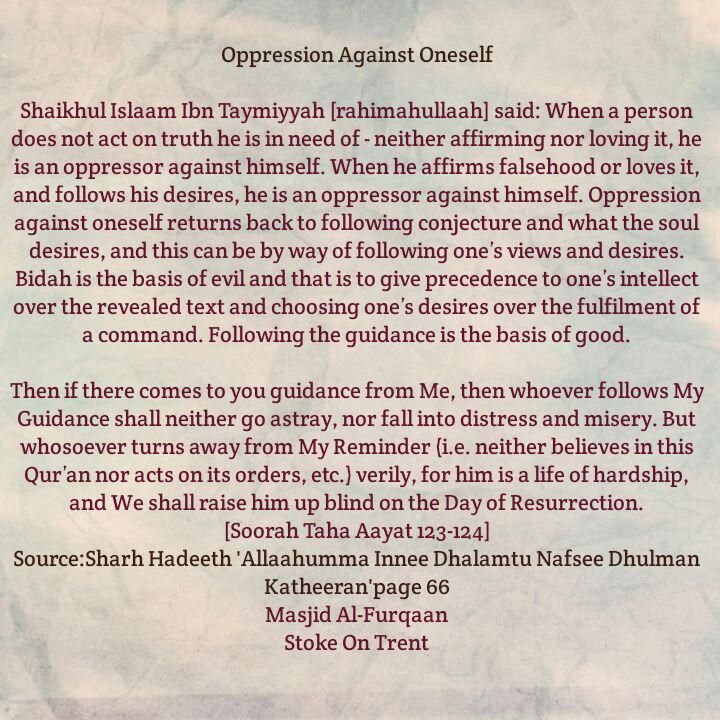A Few Reminders to Our Beloved Youth about Preserving One’s Time during I’tikaaf
In The Name of Allaah, The Most Merciful, The Bestower of Mercy
Firstly: We bring this general remind for all of us. Allaah [The Most High]:
قُلْ أَمَرَ رَبِّي بِالْقِسْطِ ۖ وَأَقِيمُوا وُجُوهَكُمْ عِندَ كُلِّ مَسْجِدٍ وَادْعُوهُ مُخْلِصِينَ لَهُ الدِّينَ ۚ كَمَا بَدَأَكُمْ تَعُودُونَ
Say (O Muhammad): My Lord has commanded justice and (said) that you should face Him only in each and every place of worship, and invoke Him only making your religion sincere to Him. As He brought you (into being) in the beginning, so shall you be brought into being (on the Day of Resurrection). [7:29]
[قُلْ أَمَرَ رَبِّي بِالْقِسْطِ – Say (O Muhammad): My Lord has commanded justice]; that is uprightness in worship and justice in dealings- neither oppression nor tyranny.
[وَأَقِيمُوا وُجُوهَكُمْ عِندَ كُلِّ مَسْجِدٍ – And you should face Him only in each and every place of worship]; that is you should face Allaah only (i.e. worship none but Allaah); strive to accomplish the acts of worship, especially the Salaah, and perform it outwardly (i.e. performed properly with its pillars, conditions and obligation) and inwardly (i.e. with sincerity, khushoo etc) and purify it from every deficiency and corruption.
[وَادْعُوهُ مُخْلِصِينَ لَهُ الدِّينَ – And invoke Him only making your religion sincere to Him]; that is intend only Allaah by way of it (i.e. your worship) without associating any partner to Him. [Ref 1]
Secondly: We bring this general reminder for our beloved youth as a source of encouragement, regarding those steadfast young men mentioned in Surah Al-Kahf. Allaah (The Most High) said:
وَرَبَطۡنَا عَلَىٰ قُلُوبِهِمۡ إِذۡ قَامُواْ فَقَالُواْ رَبُّنَا رَبُّ ٱلسَّمَـٰوَٲتِ وَٱلۡأَرۡضِ لَن نَّدۡعُوَاْ مِن دُونِهِۦۤ إِلَـٰهً۬اۖ لَّقَدۡ قُلۡنَآ إِذً۬ا شَطَطًا
And We made their hearts firm and strong when they stood up and said: “Our Lord is the Lord of the heavens and the earth, never shall we call upon any ilah (god) other than Him; if we did, we should indeed have uttered an enormity in disbelief.’’ [18:14]
Made their hearts firm and strong: It necessitates fortification of their hearts with patience and firmness; strengthening and supporting (their hearts) with the light of Imaan, so that they were able to leave the land of their people and separated themselves from the comfort they were in, and fled to the cave (for the safety) of their religion. [Ref 2]
Likewise, remember the tremendous reward awaiting those young men who grew up in the worship of Allaah (The Most High). The Messenger of Allaah (sallal-laahu-alayhi-wasallam) said: There are seven (people) whom Allaah will shade on a Day when there is no shade but His. They are a just ruler, a young person who grew up in the worship of Allah, a person whose heart is attached to the mosques, two persons who love each other who meet and depart from each other for the sake of Allah, a man whom a beautiful woman of high status seduces but he rejects her by saying I fear Allah, a person who spends in charity and conceals it such that his right hand does not know what his left hand has given, and a person who remembered Allah in private and wept.” [Bukhaari & Muslim]
Thirdly: Let us remind you of preserving your time whilst you are in I’tikaaf! Spend your time wisely and do not engage in too much chatting and thus waste a lot of valuable time. Imaam Ibnul Qayyim (rahimahullaah) said:”Time wasting is more serious than death because time wasting cuts you off from Allaah and the home of the afterlife, whereas death cuts you off from the worldly life and its people.’’ [Ref 3]
He (rahimahullaah) also said: The greatest profit in the worldly life is that you preoccupy yourself- every time- with what is more worthy (or obligatory), and with what is more beneficial for (you) in the hereafter”. [Ref 4]
We ask Allaah [The Most High] to grant you abundant good and make you a coolness of the eyes of your parents. This is a supplication every parent would desire to be answered. Saeed Ibn Mansoor said: Hazm reported to us, saying: I heard katheer Ibn Ziyaad asking Al-Hasan about the statement of Allaah (The Most High): [ رَبَّنَا هَبۡ لَنَا مِنۡ أَزۡوَٲجِنَا وَذُرِّيَّـٰتِنَا قُرَّةَ أَعۡيُنٍ – Our Lord! Bestow on us from our wives and our offspring who will be the comfort of our eyes (Ref 5)]; saying: O Abu Saeed! What is this comfort of the eyes- is it in this worldly life or the afterlife? He (Al-Hasan) said: No, rather, by Allaah, it is in this world. He (katheer) said: What is it? He (Al-Hasan) said: By Allaah it is (when) Allaah causes a slave to see (deeds) of obedience to Allaah from his wife, brother and close friend. By Allaah there is nothing more beloved to a Muslim than seeing his/her child, or father or a close friend being obedient to Allaah (The Mighty and Majestic). [Ref 6]
Finally: A few reminders about I’tikaaf: http://www.salaficentre.com/2016/06/prophetic-guidance-itikaaf-reminders-imaam-ibnul-qayyim-imaam-albaani-rahimahullaah/
Abu Faatimah (Abdullah Al-Gambi)
———————————————————————————————————————
[Ref 1: Tayseer Al-Kareem Ar-Rahmaan Fee Tafseer Kalaam Al-Mannaan’ Publisher’ Daar Ibn Hazm (1 Volume) pages 263-264. Slightly paraphrased and abridged]
[Ref2: Madaarij As-Saalikeen: 3/67-68]
[Ref3: Source: Al-Fawaaid. page 59]
[Ref 4: Al-Fawaa’id..page 60]
[Ref 5: Surah Al-Furqaan Ayah 74]
[Ref 6: Fathul Baari 8/491. At-Tabari 19/318]
